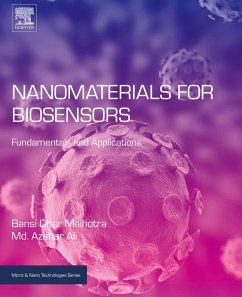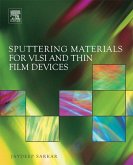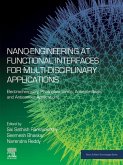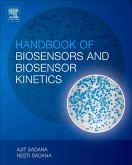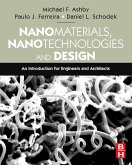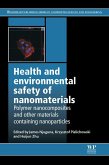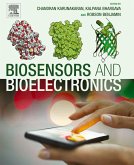Nanomaterials for Biosensors: Fundamentals and Applications provides a detailed summary of the main nanomaterials used in biosensing and their application. It covers recent developments in nanomaterials for the fabrication of biosensor devices for healthcare diagnostics, food freshness and bioprocessing. The various processes used for synthesis and characterization of nanostructured materials are examined, along with the design and fabrication of bioelectronic devices using nanostructured materials as building blocks. Users will find the fundamentals of the main nanomaterials used in biosensing, helping them visualize a systematic and coherent picture of how nanomaterials are used in biosensors.
The book also addresses the role of bio-conjugation of nanomaterials in the construction of nano-biointerfaces for application in biosensors. Such applications, including metal nanoparticles, metal oxide nanoparticles, nanocomposites, carbon nanotubes, conducting polymers and plasmonic nanostructures in biosensing are discussed relative to each nanomaterial concerned. Finally, recent advancements in protein functionalized nanomaterials for cancer diagnostics and bio-imaging are also included.
The book also addresses the role of bio-conjugation of nanomaterials in the construction of nano-biointerfaces for application in biosensors. Such applications, including metal nanoparticles, metal oxide nanoparticles, nanocomposites, carbon nanotubes, conducting polymers and plasmonic nanostructures in biosensing are discussed relative to each nanomaterial concerned. Finally, recent advancements in protein functionalized nanomaterials for cancer diagnostics and bio-imaging are also included.
- Provides a detailed study on how nanomaterials are used to enhance sensing capabilities in biosensors
- Explains the properties, characterization methods and preparation techniques of the nanomaterials used in biosensing
- Arranged in a material-by-material way, making it clear how each nanomaterial should be used
Dieser Download kann aus rechtlichen Gründen nur mit Rechnungsadresse in A, B, BG, CY, CZ, D, DK, EW, E, FIN, F, GR, HR, H, IRL, I, LT, L, LR, M, NL, PL, P, R, S, SLO, SK ausgeliefert werden.

